Roger's Scenario Thread
-
Name NWO Canada 1939
Description New World Order Variant with Canada as a separate nation
link
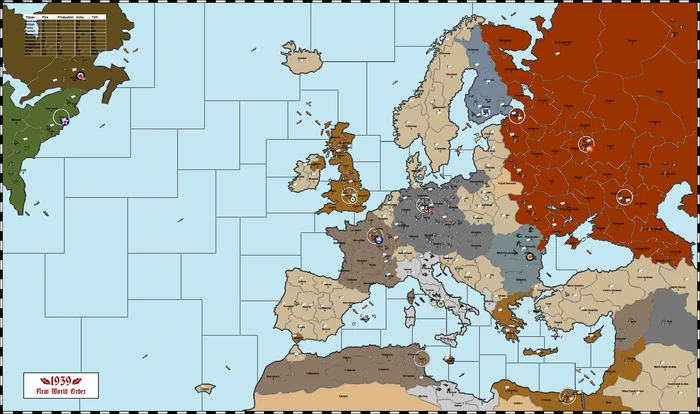
Good Points
- Playable with Fast AI
Bad Points
- Can be a bit hard for Germany to get momentum
-
Name Lord of the Rings: Middle Earth
Description The War of the Ring
link
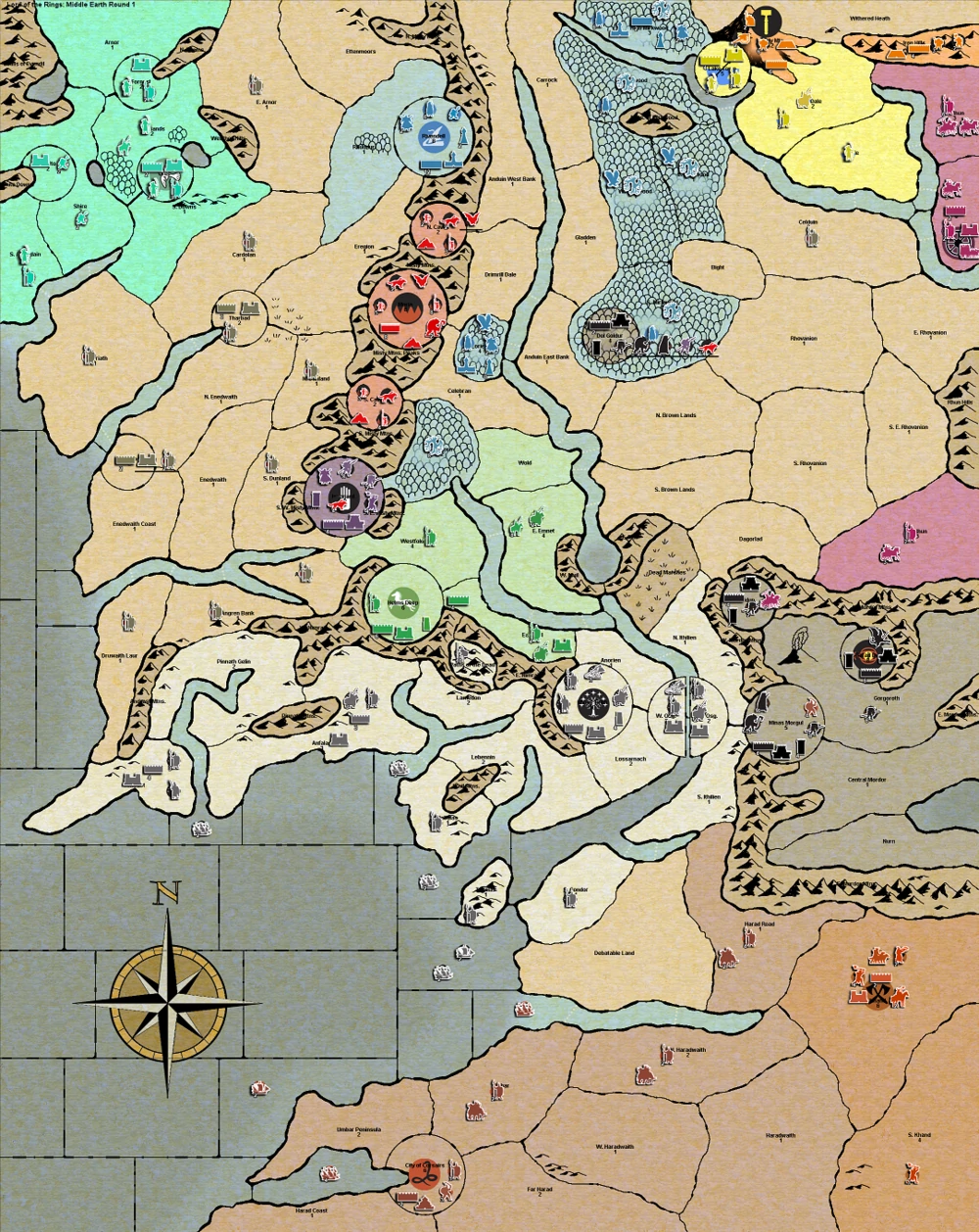
Good Points
- Map evokes the illustrations from the books
- Many interesting unit types
Bad Points
- Mass production of unique types
- No feel of pre-industrial warfare
- No sense of Mordor having a superior numbers in a race against time
-
Name World War 1 End of Empires
Description World War 1 (starting 1915) with Upkeep costs
link
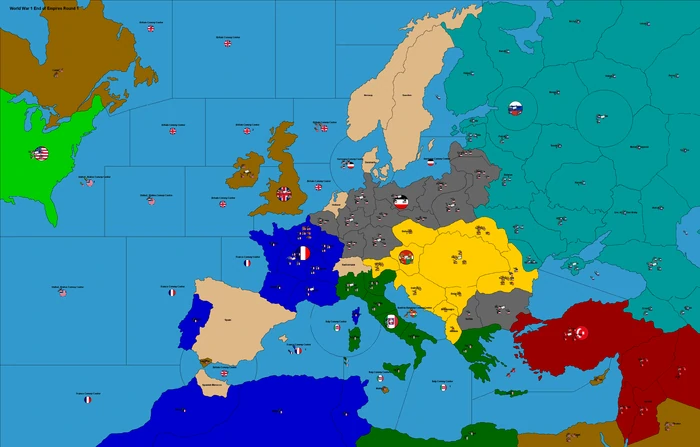
Good Points
- Upkeep costs are a fixed percent of purchase cost
Bad Points
- AI has trouble playing the Americans
- Russian revolution rules are undocumented
- No feel of trench warfare
- Predestined Russian collapse leaves the Entente at a disadvantage.
-
Imho the main issue in most of WW1/WW2 scenarios is rushing Russia is just too much lucrative which eliminates other Axis/CP options.
That's why some maps implement special rules to offset it. Domination 1914 NML is the most successfull one to cancel the obvious lucrativeness of rushing Russia to expand other options thanks to conscripts.
Other option could be decreasing Axis/CP income and randomly spamming a few German subs in the Atlantic each round.
-
@schulz Part of the issue is real world one, the Germans should have focused on the East and stood on the defense in the West. Every WW1 game shows this.
This game shows somewhat better the Entente economic advantage. See The Economics of World War 1 for interesting discussion.
-
Name 270 BC
Description The Roman conquest of the Mediterranean
link
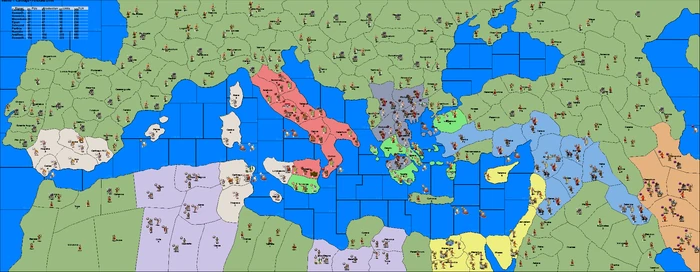
Good Points
- Beautiful unit art
- Interesting situation with many points of conflict
Bad Points
- No effort made to reflect the historical realities of ancient warfare. Tactically this is reskinned WW2 without aircraft
- No victory conditions
-
I think Germany would be in a worse shape if focused on the East and stay on defensive in the West in 1914.
Although The Schlieffen-Moltke plan failed, Germany has captured Belgium and Northeastern France which was the source of %35-%40 steel and coal production of France. Germany couldn't cripple Russia within a few months like they did to France.
-
@rogercooper said in Roger's Scenario Thread:
Bad Points
- No effort made to reflect the historical realities of ancient warfare. Tactically this is reskinned WW2 without aircraft
What would these effort be? Just curious. Also, I don't agree that the basic rules-sets are representing WW2 better than other time periods, especially since there are no rail-ways.
-
@cernel Giving more of ancient feel could involve
- Upkeep costs to prevent ever-expanding armies
- Advantages for combined-arms forces
- Some consideration of sieges, like cavalry being unable to attack city walls
- Move 0 local forces
-
@schulz said in Roger's Scenario Thread:
Although The Schlieffen-Moltke plan failed, Germany has captured Belgium and Northeastern France which was the source of %35-%40 steel and coal production of France. Germany couldn't cripple Russia within a few months like they did to France.
Germany didn't cripple France in 1914 by taking Belgium & Picardy. With Britain as an ally, France had access to the steel resources of the US.
With Russia, the key Germany objectives should have been Riga, Minsk & Kiev. That would secure vast tracts of fertile farmland and probably force Russia to sue for peace in 1915, rather than 1917. And how long would British & French being willing to lose lives attacking the entrenched Germans, if the Germans had not occupied Belgium.
-
@rogercooper said in Roger's Scenario Thread:
@schulz said in Roger's Scenario Thread:
Although The Schlieffen-Moltke plan failed, Germany has captured Belgium and Northeastern France which was the source of %35-%40 steel and coal production of France. Germany couldn't cripple Russia within a few months like they did to France.
Germany didn't cripple France in 1914 by taking Belgium & Picardy. With Britain as an ally, France had access to the steel resources of the US.
With Russia, the key Germany objectives should have been Riga, Minsk & Kiev. That would secure vast tracts of fertile farmland and probably force Russia to sue for peace in 1915, rather than 1917. And how long would British & French being willing to lose lives attacking the entrenched Germans, if the Germans had not occupied Belgium.
From The Rise and Fall of the Great Powers.
"The territory occupied by Germany held 64 percent of French pig-iron production, 24 percent of its steel manufacturing, and 40 percent of the coal industry, dealing a serious blow to French industry."
-
From The Rise and Fall of the Great Powers.
"The territory occupied by Germany held 64 percent of French pig-iron production, 24 percent of its steel manufacturing, and 40 percent of the coal industry, dealing a serious blow to French industry."
A serious blow to French industry, but not to the French army. Was there a campaign where the French faltered for the lack of equipment?
-
@rogercooper said in Roger's Scenario Thread:
From The Rise and Fall of the Great Powers.
"The territory occupied by Germany held 64 percent of French pig-iron production, 24 percent of its steel manufacturing, and 40 percent of the coal industry, dealing a serious blow to French industry."
A serious blow to French industry, but not to the French army. Was there a campaign where the French faltered for the lack of equipment?
From encyclopedia.1914-1918
"A Shortage of Raw Materials
The outbreak of the war shrank the industrial capacity and led to massive devastation and destruction. As early as August 1914, France was one of the most devastated countries. Following the invasion and occupation of northern and eastern France by German forces, France lost 14 percent of its industrial output. Before the war, this area produced 75 percent of the French coal production, 81 percent of the iron, 63 percent of the steel, 85 percent of the linen, 94 percent of the wool, and 75 percent of the sugar.
The frontline crossed the coal basin in northern France so that the colliers of Bethune had to work several days and nights under enemy shelling."
For example Britain had a shell crisis in 1915 despite being 3.rd leading steel producer in the world. I don't think France was unaffected of this lost. Though it would be good to find a reliable source about its effect to the French industry and how beneficial was to occupy Burgundy and Belgium for Germany.
-
@schulz said in Roger's Scenario Thread:
@rogercooper said in Roger's Scenario Thread:
From The Rise and Fall of the Great Powers.
"The territory occupied by Germany held 64 percent of French pig-iron production, 24 percent of its steel manufacturing, and 40 percent of the coal industry, dealing a serious blow to French industry."
A serious blow to French industry, but not to the French army. Was there a campaign where the French faltered for the lack of equipment?
From encyclopedia.1914-1918
"A Shortage of Raw Materials
The outbreak of the war shrank the industrial capacity and led to massive devastation and destruction. As early as August 1914, France was one of the most devastated countries. Following the invasion and occupation of northern and eastern France by German forces, France lost 14 percent of its industrial output. Before the war, this area produced 75 percent of the French coal production, 81 percent of the iron, 63 percent of the steel, 85 percent of the linen, 94 percent of the wool, and 75 percent of the sugar.
The frontline crossed the coal basin in northern France so that the colliers of Bethune had to work several days and nights under enemy shelling."
For example Britain had a shell crisis in 1915 despite being 3.rd leading steel producer in the world. I don't think France was unaffected of this lost. Though it would be good to find a reliable source about its effect to the French industry and how beneficial was to occupy Burgundy and Belgium for Germany.
Compare that to the effects of the blockade on Germany culminating in the food shortages that played a major role in causing Germany to collapse in 1918. Securing the East, would have secured Germany's food supply (as well as access to other natural resources). By the time Russia collapsed, Eastern Europe was in too much chaos for Germany to benefit from controlling it.
-
Name Hearts of Iron-Fatherland
**A hypothetical, alternate-history, post-WW2 conflict with a 3 way struggle between the Axis, the Western Allies and Communist China/Siberia
link
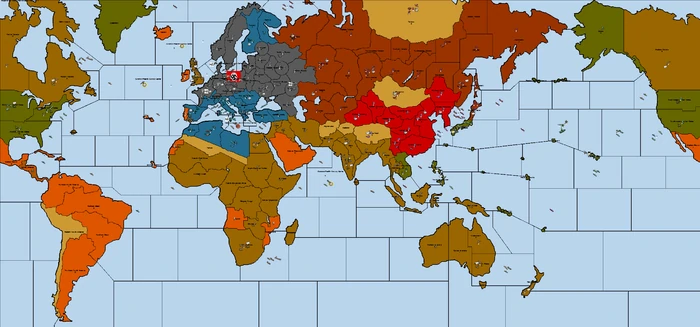
Good Points
- Interesting hypothetical situation
- Many unique unit types
Bad Points
- Most of the new units aren't useful
-
Yes, the blockade of Germany had a bigger impact but they couldn't predict that the Schlieffen/Moltke plan won't succeeded and the war would last years. With this plan they had a realistic chance to finish the war quickly.
It is also hard to predict how deep could Germany advance in the Eastern front if the front was prioritized. Maybe Britain/France could have more effort in Dardanelles campaign to knock the Ottomans out of war to establish supply route through Russia in this scenario.
-
@schulz said in Roger's Scenario Thread:
Yes, the blockade of Germany had a bigger impact but they couldn't predict that the Schlieffen/Moltke plan won't succeeded and the war would last years. With this plan they had a realistic chance to finish the war quickly.
Actually the failure of the plan was inevitable. They had already wargamed out that it would impossible for the right flank to envelop Paris. It was simply not possible for the soldiers to march that far and there were not . And then the Germans did not change their plans. Take a look at Terence Zuber's scholarship on German war plans.
Taking out Belgium and Picardy hurt French production but did not directly benefit the Central Powers. In the East you had Poland, the Baltic, Belarus & the western Ukraine, whose inhabitants had no particularly loyalty to Russia and would actually been willing to produce for for the Germans.
-
@rogercooper said in Roger's Scenario Thread:
@schulz said in Roger's Scenario Thread:
Yes, the blockade of Germany had a bigger impact but they couldn't predict that the Schlieffen/Moltke plan won't succeeded and the war would last years. With this plan they had a realistic chance to finish the war quickly.
Actually the failure of the plan was inevitable. They had already wargamed out that it would impossible for the right flank to envelop Paris. It was simply not possible for the soldiers to march that far and there were not . And then the Germans did not change their plans. Take a look at Terence Zuber's scholarship on German war plans.
Taking out Belgium and Picardy hurt French production but did not directly benefit the Central Powers. In the East you had Poland, the Baltic, Belarus & the western Ukraine, whose inhabitants had no particularly loyalty to Russia and would actually been willing to produce for for the Germans.
Moltke did change the plan by reducing the strenght of the right flank in favour of reinforcing Alcace-Lorraine and East Prussia. Kluck maybe couldn't have to drive his army towards southeast if his and Below's armies had enough strength.
I don't say the original Sclieffen plan would work 100% if executed properly. Just I don't think it was doomed to fall in the beginning.
-
Name Domination 1914 No Mans Land
Description World War 1 on a detailed world map
link
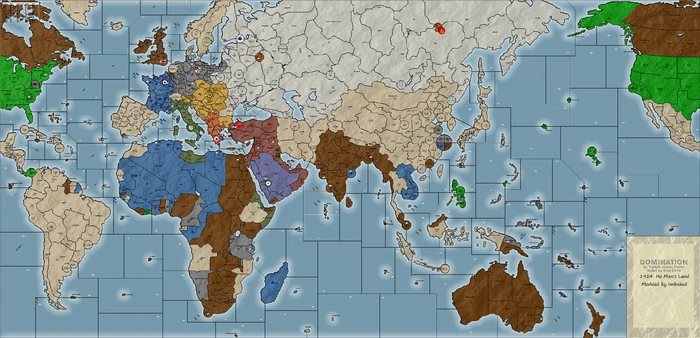
Good Points
- Conflict all over the world
Bad Points
- Odd handling of communists
- Favors the Central Powers
- AI has trouble playing the US
-
@rogercooper How would you make both sides balance